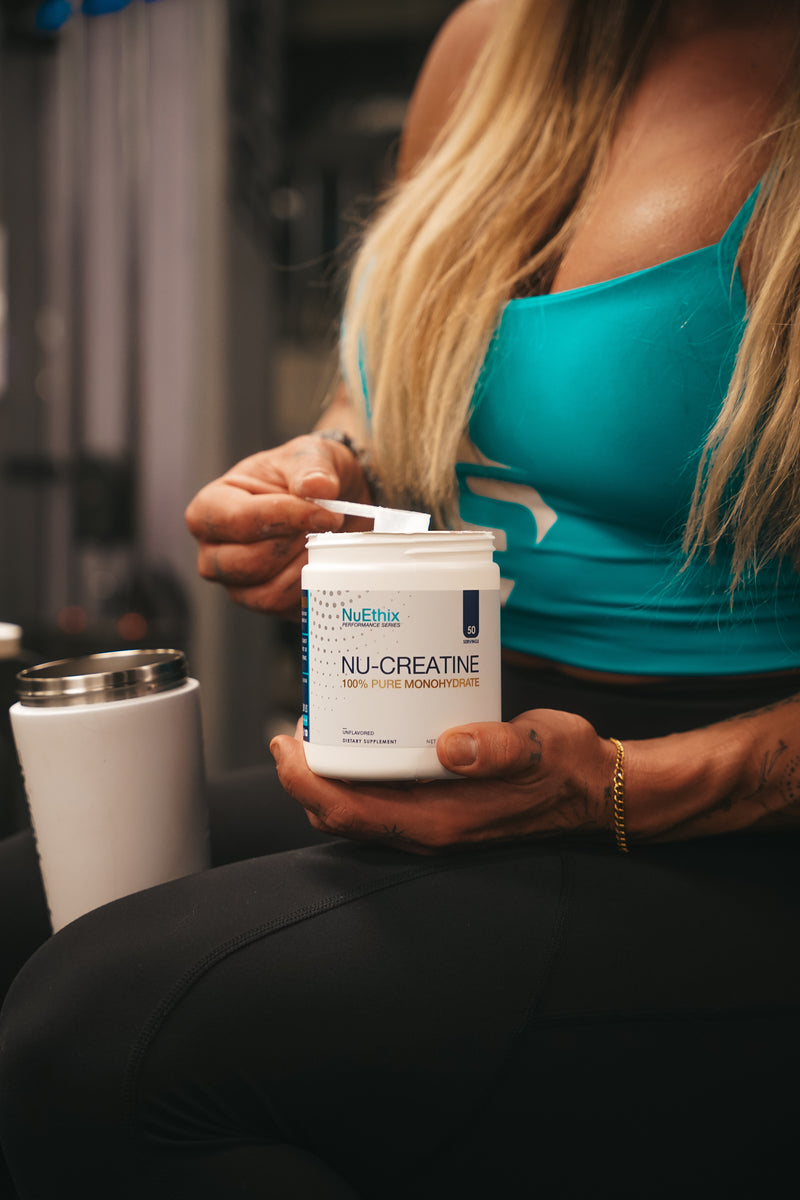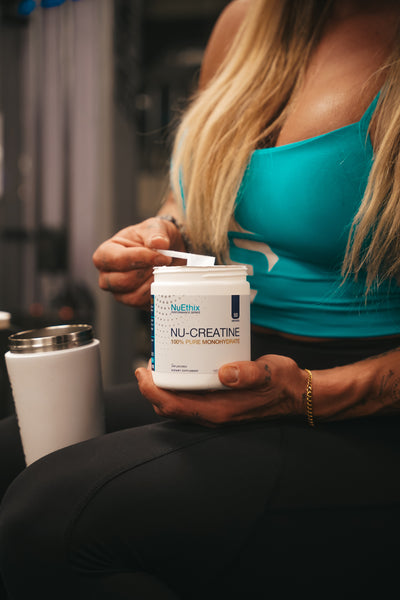
Ashwagandha: Does It Actually Help?
Ashwagandha: Does It Actually Help?
Ashwagandha has taken the world by storm in the past several years with all of its health benefits and ability to combat one of the biggest issues, stress. There’s a very good chance that you’ve probably heard of Ashwagandha by now, but do you have any idea why it’s gotten such a popularity boost?
Used in a traditional form of alternative medicine, Ashwagandha or Withania somnifera has been around for thousands of years. But why is it suddenly becoming more popular in the United States? Well, that’s a great question and we’ll cover that here shortly.
The most common benefits aside, there’s a lot that this standalone herb has to offer in terms of health, and we need to dig deeper here to explore why Ashwagandha is the new Taylor Swift of wellness and health products.
You have to admit, the Taylor Swift plug was pretty good but all jokes aside…
Let’s jump in.
What is Ashwagandha?
Ashwagandha (Withania somnifera) can be found in subtropical regions throughout the continents of Africa, Asia, and Europe. The name, Ashwagandha, comes from Sanskrit referring to the plant’s roots smelling like a wet horse – “ashwa” meaning horse and “gandha” meaning smell. [1][2]
To be completely honest, I can’t wait for Bath & Body Works to come out with a candle for this – nothing like a wet horse 3-wick to get your atmosphere right.

Getting back on track – Ashwagandha is also commonly known as Indian Ginseng, and Winter Cherry throughout the traditional Indian medicine system. [3] Used for its adaptogenic properties, Ashwagandha has major benefits in helping alleviate stress and anxiety which is a common issue for many people.
How Does Ashwagandha Help?
Ashwagandha has been heavily studied and researched for its benefits through clinical trials over the years. Recently, a systematic review of 41 human trials in 2021 revealed that the inclusion of Ashwagandha at doses varying from 240 to 1,250 mg/day significantly reduced stress and anxiety levels. [4]
If you’re unfamiliar with the term adaptogen, it can be best summarized as an herbal support for the ability to help regulate cortisol and reduce overall stress, anxiety, and fatigue. [5] Ashwagandha is one of the most notable adaptogens alongside Rhodiola rosea.
Ashwagandha has been linked to many different benefits such as the following:
- Stress and Anxiety Relief
- Improved Sleep Patterns
- Improved Cognitive Function
- Fertility Support
- Testosterone Support
- Reduction of Inflammation
- Memory and Alertness
- Blood Glucose Levels
For men and women suffering from fertility issues, Ashwagandha has been commonly used because of the beneficial effects that help reduce cortisol levels which can hinder sex drive and hormonal balance.

One double-blind study was conducted in males aged 40-70 suffering from mild fatigue and being overweight, had showed a substantial increase in testosterone production when taking Ashwagandha. [6]
Performing everyday tasks that require attention to detail, alertness, and a higher level of focus has been widely associated with Ashwagandha. One clinical trial performed on 50 adults showed that the inclusion of Ashwagandha helped improve performance on cognitive tasks, attention, and reaction time. [7]
How Much Ashwagandha Should I Take?
This can vary depending on your situation, but a general recommendation is to take 500 mg twice a day according to Yufang Lin, MD with the Cleveland Clinic. [8] With that in mind, many individuals have found that taking a lesser dosage has still experienced many benefits while taking it daily.
While there’s no direct answer to a specific dose being deemed as the best, we recommend just sticking with the best recommendation here.
Many supplements containing Ashwagandha typically follow this standard as well, being dosed at 500 mg. Your experience using this top adaptogenic can impact the dosage that you choose to start at or maintain.
Where Can I Find Ashwagandha?
Speaking of supplements, this is the most common way of obtaining the herbal life-changer. You can find many different options for Ashwagandha that are fairly cost-effective, so you won’t have to worry about stretching the pockets a bit since it’s a very affordable product on the market right now.
When looking at Ashwagandha supplements and what the dosages are, you may see some different names associated with Ashwagandha like KSM-66. This patented form of Ashwagandha is the true cream of the crop as it holds the highest concentration of all major root-only extracts and avoids the use of leaves. [9]
To help further the absorption of Ashwagandha, you can find formulations that combine black pepper extract or Bioperine as it helps increase the body’s efficiency in absorbing minerals, and herbal extracts like Ashwagandha making it more effective so you receive the full benefits that it brings.


A great option for anyone looking to reap the benefits is NuEthix Formulations’ own, Ashwagandha KSM-66 which contains 500 mg of KSM-66 Ashwagandha root extract and 5 mg of Bioperine black pepper fruit extract. This all-new product that was recently launched can help assist with all of the benefits listed above and for a very affordable price which is very difficult to pass up if you’ve been looking for the best Ashwagandha supplement on the market today.
How Long Does It Take for Ashwagandha to Work?
Very different from fast-acting products like pre-workout and energy-based supplements, Ashwagandha usually takes a few days to a few weeks depending on the person and dosages to start seeing notable differences. While the results aren’t instant, the best things are worth the wait and that is true with Ashwagandha.
By incorporating this into your daily regime and taking it consistently, you should begin to notice the benefits and it’s encouraged to use it for 60 days to experience the full effectiveness.
Many users begin to experience improved sleep patterns within the first 30 days while using a moderate dose of Ashwagandha according to a double-blind randomized control trial conducted on college students aged 18-50. [10]
Wrapping Things Up
Should you find yourself having issues related to stress or having difficulty maintaining a healthy sleep schedule among many others, taking Ashwagandha is a great addition for its adaptogenic properties and overall benefits.
Ashwagandha is an affordable option for anyone looking to go with herbal support without any crazy formulations or supplements that contain a lot of unnecessary fillers.
Much research has been conducted and its formidable use for thousands of years makes this a must-have for anyone looking to experience the full potential of this wonder root.
References
- Office of Dietary Supplements - Ashwagandha: Is it helpful for stress, anxiety, or sleep? (n.d.-b). https://ods.od.nih.gov/factsheets/Ashwagandha-HealthProfessional/
- Office of Dietary Supplements - Ashwagandha: Is it helpful for stress, anxiety, or sleep? (n.d.-b). https://ods.od.nih.gov/factsheets/Ashwagandha-HealthProfessional/
- Office of Dietary Supplements - Ashwagandha: Is it helpful for stress, anxiety, or sleep? (n.d.-b). https://ods.od.nih.gov/factsheets/Ashwagandha-HealthProfessional/
- Lopresti, A. L., & Smith, S. J. (2021). Ashwagandha (Withania somnifera) for the treatment and enhancement of mental and physical conditions: A systematic review of human trials. Journal of Herbal Medicine, 28, 100434. https://doi.org/10.1016/j.hermed.2021.100434
- Professional, C. C. M. (n.d.-a). Adaptogens. Cleveland Clinic. https://my.clevelandclinic.org/health/drugs/22361-adaptogens
- Lopresti, A. L., Drummond, P. D., & Smith, S. J. (2019). A Randomized, Double-Blind, Placebo-Controlled, Crossover Study Examining the Hormonal and Vitality Effects of Ashwagandha (Withania somnifera) in Aging, Overweight Males. American Journal of Men S Health, 13(2), 155798831983598. https://doi.org/10.1177/1557988319835985
- Ng, Q. X., Loke, W., Foo, N. X., Tan, W. J., Chan, H. W., Lim, D. Y., & Yeo, W. S. (2019). A systematic review of the clinical use of Withania somnifera (Ashwagandha) to ameliorate cognitive dysfunction. Phytotherapy Research, 34(3), 583–590. https://doi.org/10.1002/ptr.6552
- Benefits of ashwagandha and how much to take. (2024, July 17). Cleveland Clinic. https://health.clevelandclinic.org/what-is-ashwagandha
- What is KSM-66? https://ksm66ashwagandhaa.com/ksm-66/what-is-ksm-66/
- Baker, C., Kirby, J. B., O’Connor, J., Lindsay, K. G., Hutchins, A., & Harris, M. (2022). The perceived impact of ashwagandha on stress, sleep quality, energy, and mental clarity for college students: Qualitative analysis of a Double-Blind Randomized Control trial. Journal of Medicinal Food, 25(12), 1095–1101. https://doi.org/10.1089/jmf.2022.0042

Austin Perry
Veteran fitness and health writer Austin Perry has accrued almost a decade worth of experience in sports nutrition and supplementation while having numerous featured articles published and shared within the wellness community.





